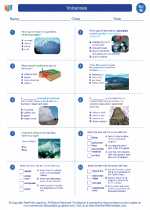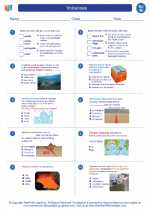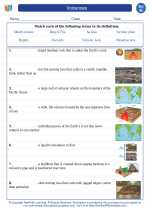Mountain: Definition and Formation
A mountain is a large landform that rises prominently above its surroundings, typically exhibiting steep slopes, a relatively confined summit area, and considerable height. Mountains are formed through tectonic processes, volcanic activity, or erosion and weathering over long periods of time.
Tectonic Processes
Mountains can be formed through tectonic processes such as the collision of tectonic plates. When two continental plates collide, the land is pushed upwards, forming mountain ranges. The Himalayas, for example, were formed by the collision of the Indian and Eurasian plates.
Volcanic Activity
Volcanic mountains are formed when molten rock (magma) erupts onto the Earth's surface. As the lava cools and solidifies, it builds up, forming a mountain. Examples include Mount Kilimanjaro in Tanzania and Mount Fuji in Japan.
Erosion and Weathering
Erosion and weathering can also shape mountains over time. The gradual wearing away of rock by wind, water, and ice can create mountainous landscapes, such as the Rocky Mountains in North America.
Study Guide: Mountains
- Define a mountain and describe its prominent features.
- Explain the tectonic processes involved in the formation of mountains.
- Provide examples of mountain ranges formed by tectonic processes.
- Describe how volcanic activity leads to the formation of volcanic mountains.
- Identify at least two volcanic mountains and their locations.
- Discuss the role of erosion and weathering in shaping mountain landscapes.
- Give examples of mountain ranges shaped by erosion and weathering.
- Compare and contrast the formation of different types of mountains.
- Explain the significance of mountains in the environment and human activities.
◂Science Worksheets and Study Guides Eighth Grade. Volcanoes

 Worksheet/Answer key
Worksheet/Answer key
 Worksheet/Answer key
Worksheet/Answer key
 Vocabulary/Answer key
Vocabulary/Answer key
 Vocabulary/Answer key
Vocabulary/Answer key
 Vocabulary/Answer key
Vocabulary/Answer key
